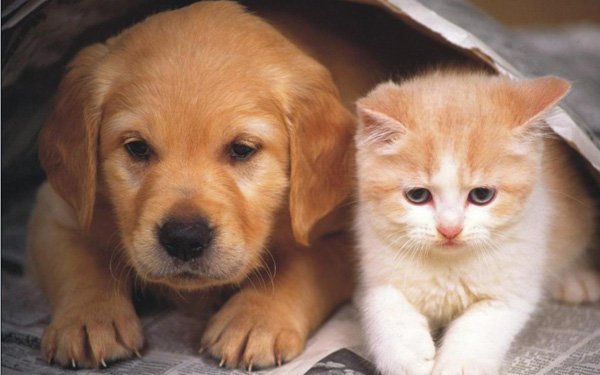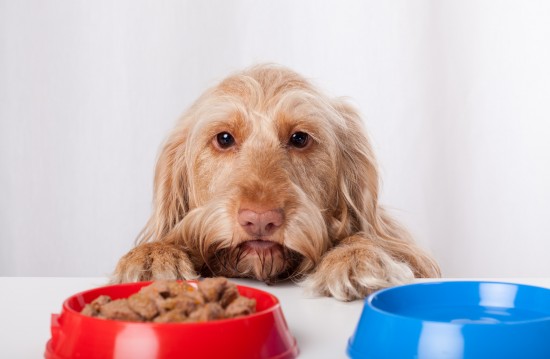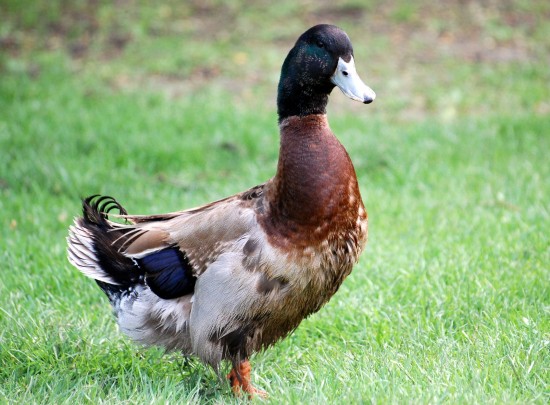I once heard one of Frank Muir抯 stories on that old BBC radio programme My Word! For his story, Frank was attempting to 揺xplain?the origin of 揟he more haste, the less speed?and did so by turning this phrase into 揟he more Hayes抎, the less peed?after a story about How to Live with an Incontinent Afghan Puppy.
The only trouble is, he didn抰 explain what to do if you are 揗rs Hayes?and have to clean up after a new pet that hasn抰 quite learnt the rudiments of housetraining or where the kitty litter tray is. Frank Muir was certainly correct in emphasising that cleaning up the mess quickly is the best way to help the kitten or puppy learn that the carpet behind the sofa or under the dresser isn抰 the place to do it (along with the usual methods your vet or pet owners?manual will teach you, which involve lavish praise when things are done in the proper place and judicious use of a water pistol when they抮e not).
Cleaning up after a kitten or puppy has made a mess isn抰 pleasant. There is no way that you can avoid smelling the repulsive stuff. It抯 one of those nasty jobs that you just have to grit your teeth and do it (my children once tried putting pegs over their noses to keep out the stench. This does not work). But once you抳e taken a deep breath and got ready to tackle it, what do you do?
First of all, I should start with a word of warning. Cat faeces often carry toxoplasmosis bacteria, which is a particular hazard for pregnant women and their unborn babies. If you are pregnant, you should not clean up cat faeces or even empty the litter tray (pay someone else to do it or get your husband/partner to do it ?you抳e got a perfect excuse). If there is no way around it, then be sure to wear rubber gloves kept exclusively for this sort of dirty job (rather than the ones you use for washing dishes) and wash your hands very, very thoroughly afterwards. Come to think of it, that抯 good advice for anybody dealing with animal dirt.
To clean up the mess, you will need the following: rubber gloves (as described above); lots of paper towels, toilet paper or newspaper; a scrubbing brush; and diluted chlorine bleach or disinfectant in a bowl or other wide-topped container (don抰 use the chlorine bleach on dark coloured surfaces).
Your first step involves removing the unpleasantness. If the particular crime committed by your new pet is liquid, then put the paper towels, newspaper or toilet paper over the top of it and blot it up. A towel can also be used for this, but be sure to soak it in disinfectant afterwards and wash very thoroughly, preferably separately. If the crime is solid, then pick it up with a paper towel (etc) and dispose of it. With a particularly nasty mess to tidy up, you will have to make several attempts at scraping traces of the mess up. This is the nastiest part of the job, so work quickly.
After this, you have to make sure of two things. Firstly, you have to make sure that no traces remain that have a smell that makes your new pet think that this is the correct place to go. Secondly, you have to make sure that all the bacteria are killed for hygiene reasons. To do this, pour some of the dilute chlorine bleach or disinfectant onto the site where the mess was made. Scrub thoroughly. You will have to rinse the brush in the bowl of bleach from time to time to get any particles of excreta off.
Once you have scrubbed very thoroughly, then blot up the liquid from the carpet, again using a paper towel (etc). Once again, you can use a towel for this, but don抰 use the same towel that you used for blotting up any liquid mess. Dispose of this.
Sometimes, you may get repeat offences in the same site. In this case, then you will need to repeat the scrub-and-blot routine a few times in one house cleaning session. If the crime scene is in an obscure place, then you can try shaking pepper over the spot to put your pet off when it tries to sniff around the area again.
The same domestic cleaning technique can be used for cleaning up during that annoying stage when children are first out of nappies but haven抰 got the hang of potty training ?except that you don抰 need to worry about the pepper.

 Choose the Right Boarding Services for Your Pets
Choose the Right Boarding Services for Your Pets
Choose the Right Boarding Services for Your Pets
Choose the Right Boarding Services for Your Pets
 Ten Great Reasons For Adopting An Older Dog
Ten Great Reasons
Ten Great Reasons For Adopting An Older Dog
Ten Great Reasons
 Dogs That Cannot Go Up And Down Stairs
Dogs That Cannot
Dogs That Cannot Go Up And Down Stairs
Dogs That Cannot
 Ten Common Dog Food Ingredients Explained
Ten Common Dog Fo
Ten Common Dog Food Ingredients Explained
Ten Common Dog Fo
 Wet Feather In Ducks & Geese Explained
Wet Feather In Du
Wet Feather In Ducks & Geese Explained
Wet Feather In Du